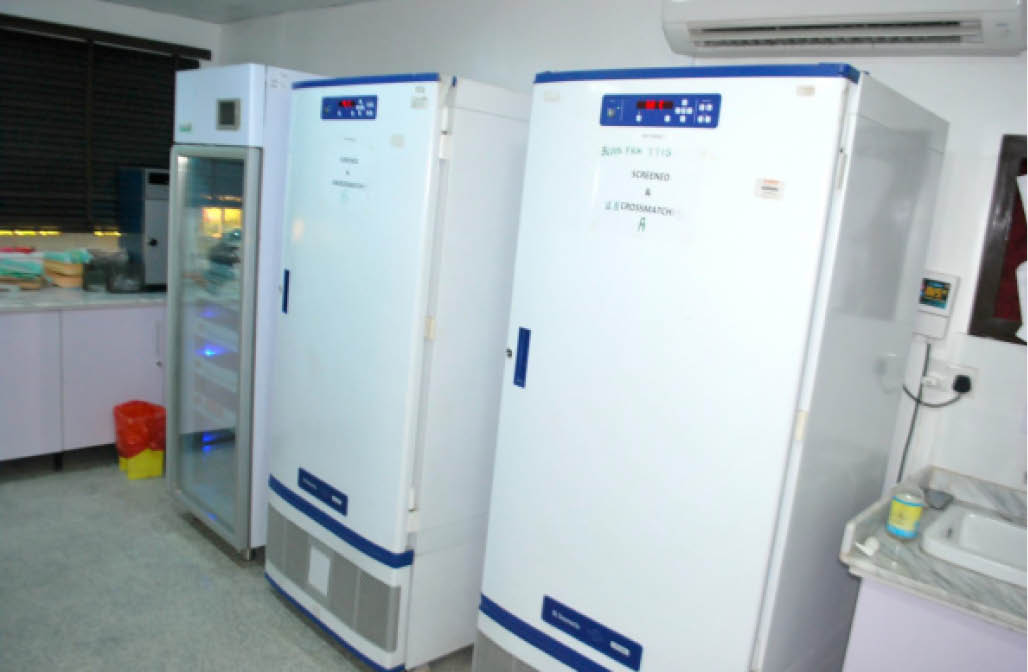Inside LUTH’s ‘super cancer’ centre
One area of health needs in tertiary hospitals driving medical tourism from Nigeria overseas is cancer. Now, a partnership launched in 2016 teaming Nigeria’s private and public sectors is turning attention to it. The focus on “areas of need within tertiary health care” is a strategy private partners hold on to. In this partnership since […]

One area of health needs in tertiary hospitals driving medical tourism from Nigeria overseas is cancer. Now, a partnership launched in 2016 teaming Nigeria’s private and public sectors is turning attention to it.
The focus on “areas of need within tertiary health care” is a strategy private partners hold on to.
In this partnership since 2016, the private partner is the Nigeria Sovereign Investment Authority (NSIA); the public partners are teaching hospitals and federal medical centres.
So far NSIA has linked up with 14 federal medical institutions with needs in oncology, nephrology, cardiology and orthopaedics. In plain speak, is about deficits in dealing with cancer, kidney diseases, heart diseases and injuries to bones and muscles.

Since 2016, three projects have been ongoing, one of them with the Lagos University Teaching Hospital (LUTH). The first to go full online is for cancer-the NSIA-LUTH Cancer Centre, officially opened to the public this February by President Muhammadu Buhari.
Nigerians trooping abroad spend up to $1 billion on health care-that’s around N362 billion, more than double Kaduna’s entire 2019 budget.
Almost 40% of Nigerians’ spending on health care abroad goes to cancer management. The widespread observations about cancer care contribute to perceptions about living with cancer nationwide.
When the NSIA-LUTH project started two years ago, eight facilities alone had radiotherapy machines installed: only two worked, and they too frequently broke down, observes Uche Orji, managing director of NSIA.
“My first-hand observation at LUTH, during which I saw hundreds of patients waiting for up to 2 weeks to be treated, as LUTH staff frantically tried to source parts to get their old radiotherapy machine repaired, convinced us that the NSIA had to start with oncology immediately,” Orji says.
A cancer centre already existed on LUTH premises. The partnership invested $11 millin to rehabilitate, equip and operate it. Under the agreement, NSIA owns the centre 100%. After building, it will operate it then transfer it to LUTH ownership in 10 years, after which it would recouped its investment.
The presidency takes NSIA willingness to commit $11 million (that’s nearly N4 billion) to a project and hope to reap gain over 10 years as proof the administration has created the much talked-about “enabling environment” for investors to execute “high-impact” projects.
“We promised to effect policies that would continually remove debilitating constraints on the sector and create sustainable structures to strengthen our healthcare institutions for the benefit of the people,” Buhari said at the opening in February.
“Today’s commissioning, is in part, the fulfilment of our commitment to Nigerians for quality and accessible healthcare.”
The radiation therapy involved in cancer management can be confusing. Radiation can be external or internal.
For external, the radiation is administered outside the body using something called a ‘linear particle accelerator”. The NLCU has a total three of them in its radiotherapy bunkers.
For the internal bit, the radiation is placed inside the body, close to the cancerous cells. NLCU has one system in place for this kind of treatment.
To make the treatment even more precise, oncologists and their patients may need to plan. This involves using series of xrays from several angles of the body, processed through computing, to create three-dimensional images of the cancer tumours. One such simulator is installed at the centre.
A day unit for chemotherapy sits up to 14 patients at once; the suite includes an isolation room.
Expanding LUTH cancer centre from what it was is meant to reduce patient waiting times for cancer treatment.
The NLCU is expected to serve up to 3,000 patients a year, and provide training for more than 80 health care professionals in the line of cancer management.
“The centre will also have a training school for oncologists and allied specialties in the cancer management team,” said Dr Chris Bode, chief medical director at LUTH.
LUTH gets 15% of the centre’s profits for the 10 years the centre is under NSIA ownership. But a private hospital operator, South Africa’s Healthshare, will operate the centre, facilitate skill and knowledge transfer to LUTH oncology team.
At the same time as it is an “additional source of income” for LUTH, it hopes to block “leakage of foreign exchange” resulting from patients seeking medical care abroad, the centre said in a factsheet it released at its opening.
All the while, it will run on its own generated off-grid power.
“A healthy citizenry is an essential ingredient of a vibrant economy. It is our hope that this investment, though focused on non-communicable diseases, is the first of many which we believe will shape the future of healthcare in Nigeria and bring quality healthcare to many under a PPP arrangement.”
NLCU is only the first public-private partnership coming to a federal hospital in two years. Two more projects are afoot-setting up world-class diagnostic centres at Aminu Kano Teaching Hospital, Kano and at Federal Medical Centre, Uyo. They are scheduled to open by March end.
